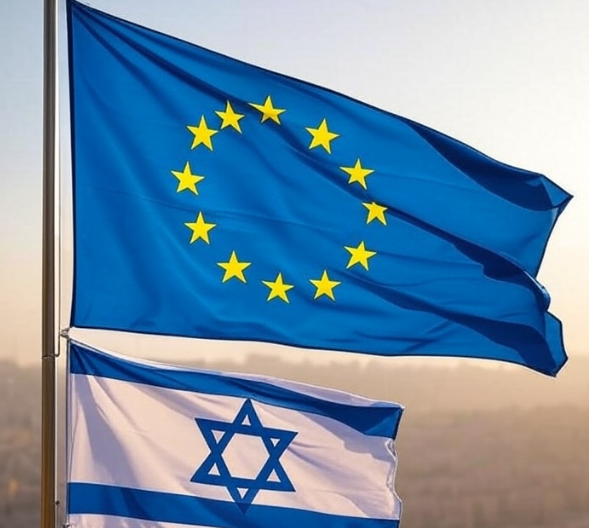
The situation in the Middle East continues to escalate, and as Israel intensifies its military actions, not only in Gaza but now also targeting Iran, global pressure is mounting, especially from European Union member states. The recent developments have sparked serious debate within the EU regarding its relationship with Israel, with growing demands for strong measures to be taken against the country for its alleged human rights violations.
Spain's Foreign Minister, José Manuel Albares, has taken a particularly strong stance. In a powerful statement, he urged the European Union to take decisive action against Israel, accusing the Israeli government of systematically violating human rights in Gaza. According to Albares, it is no longer acceptable for the EU to maintain its usual stance while civilian casualties—including babies, women, and men—continue to mount on a daily basis due to Israel's ongoing operations.
Albares emphasized that the time for mere discussions has passed. “This is the time for action,” he declared. He argued that the EU-Israel Association Agreement, which forms the legal basis for EU-Israel relations, was originally founded on shared commitments to human rights and democratic principles. Now that Israel is allegedly breaching these core principles, Albares believes it is both logical and necessary for the EU to immediately suspend this agreement.
Going further, the Spanish foreign minister called for a total halt to the supply of weapons to Israel. He urged the European Union to cancel all arms contracts with Israel, arguing that continuing to provide military support under these circumstances would directly contradict the EU’s stated commitment to international law and human rights. “If the association agreement is based on human rights, the most normal thing is that we suspend it immediately,” Albares added.
The minister’s comments reflect a growing sentiment across several EU nations. Increasingly, European leaders and citizens are becoming vocal in their opposition to Israel’s actions, particularly as the conflict spills over beyond Gaza, with recent Israeli strikes now targeting Iranian territory. These developments have made the situation even more volatile, pushing the EU into a highly complicated diplomatic position.
The growing chorus of voices within Europe is demanding not only an immediate halt to arms sales but also the imposition of sanctions against Israel. The reasoning is clear: if the EU remains silent or passive, it risks undermining its own credibility as a defender of human rights, democracy, and international law. The core values that define the European Union are being tested as the conflict in the Middle East intensifies.
Albares emphasized that Europe stands for peace, international law, and democratic ideals, and allowing continued violations of human rights in Gaza and beyond would represent a profound failure of these values. “Europe is in favor of peace, in favor of international law, and in favor of everything that represents the values of the European Union,” he said. "If we do nothing, it will be a failure of everything we stand for."
At this critical juncture, one key question looms large: Can the European Union muster the political will to take such bold, unprecedented action against Israel? Imposing sanctions and halting weapons supplies would mark a significant shift in EU foreign policy, potentially reshaping its role in the global geopolitical arena. But as the crisis deepens, many argue that the EU may have no choice but to act if it wants to preserve its identity as a principled, value-driven institution.
For now, the world watches as the EU debates its next moves—caught between its long-standing ties with Israel and its commitment to human rights and international peace. What Europe decides in the coming days could have far-reaching consequences not only for the Israel-Palestine conflict but for the EU’s standing on the global stage.
Disclaimer:
This article is based on ongoing geopolitical developments and includes statements from public officials and media reports. The situation remains dynamic and subject to change. Readers are advised to consult multiple sources for the latest updates.




